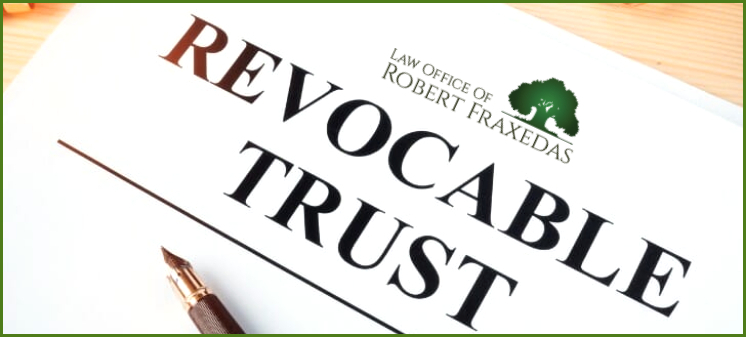
Blog Post
A Guide to the Different Types of Trusts
April 26, 2021 / Category: Uncategorized

A common concern when aging is related to ensuring your possessions will be left to loved ones. Either while you’re still living or after death, creating a trust is a way to make certain that your valuables go to the right place. It’s crucial to learn about the process, get help from a serious professional, and understand how the different sorts of trusts can help you. You can read more about the types of trusts below.
Having an estate plan in place can offer reassurance that your assets will be managed according to your wishes, both during your lifetime and after you pass away. While many people think of wills as the centerpiece of an estate plan, wills can be contested and have to go through a lengthy probate process. Instead, many people will use a trust to transfer assets to their loved ones. If you need to get your estate or inheritance sorted, a financial advisor can help you create an estate plan based on your needs and goals.
There are several reasons why you might decide to establish trust. Accordingly, there are many types of trusts, each corresponding to a different goal or financial situation. Understanding how the different types of trusts work can help you decide which one to use in your estate plan.
What Is a Trust?
A trust is a legal arrangement between two parties: the trustee and the trustor (sometimes also called the settlor or the grantor). The trustor is the person who establishes the trust and transfers assets into it. The trustee is the person or entity responsible for managing those assets according to the wishes of the trustor. Often the trustor will also be the trustee, or one of a number of trustees — until their death, of course.

Similarly to a will, a trust can have beneficiaries. Those beneficiaries maybe your spouse, children, other family members or even close friends. You can also name a charitable organization as a trust beneficiary. Those named as trust beneficiaries are entitled to receive assets from the trust, based on how you (the settlor) direct the trustee to distribute them.
The types of assets you may transfer to trust include:
- Real property, including homes, land, or investment real estate
- Deposit accounts held at banks and credit unions
- Investments, including stocks, bonds, and money market accounts
- Life insurance policies
- Business interests and assets
- Collectibles and antiques
Funding a trust occurs when you transfer assets into the trust and under the control of the trustee.
Advantages of Trusts for Estate Planning
A trust has benefits for creators and beneficiaries alike. You may consider a trust if you want to:
- Pass on assets without going through probate (which is required for wills)
- Create a plan for managing personal or business assets if you become incapacitated
- Set aside assets to care for a special needs dependent
- Establish rules or requirements beneficiaries must meet to receive their inheritance
- Preserve assets for the care of minor children in the event that you pass away
- Potentially reduce estate and gift taxes
Trusts allow you to prepare for the future of your loved ones. “A trust can be a critical part of any estate plan, especially if you have small children,” says Paul T. Joseph, the attorney, certified public accountant (CPA), and founder of Joseph & Joseph Tax & Payroll in Williamston, Michigan. He adds that they’re also helpful if you have older children who are “not capable of handling and managing the assets contained in the trust.” The stipulations you outline in the trust can help your beneficiaries use it wisely.
Revocable vs. Irrevocable Trusts
Before diving into specific types of trusts, it helps to understand the two broad categories of trusts.
Revocable Trusts
Revocable trusts, also referred to as revocable living trusts, allow you to maintain control of your assets during your lifetime. You can change or dissolve a revocable trust if necessary. (That’s why they’re called revocable trusts — you can “revoke” them.) For example, if you get divorced or acquire new assets, you may need to update the terms of the trust to reflect the consequences of those events.
A revocable trust offers flexibility, since the transfer of assets and the guidelines you’ve specified for the handling of those assets doesn’t become permanent until you pass away. With a revocable trust, you have the option to name yourself the trustee or co-trustee and choose someone to act as a successor trustee when you die or if you’re otherwise unable to manage the trust.

Revocable trusts aren’t subject to probate. That means the assets held in the trust are distributed to beneficiaries without having to go through the probate court. This allows for greater privacy than a will. And it can be more difficult for creditors to claim assets held in a revocable trust in order to satisfy any outstanding debts you may have.
Irrevocable Trusts
Once you establish an irrevocable trust, you cannot change or modify it in any way. If you transfer real estate or other assets you own to the trust, you can’t undo that action. Given that this means less flexibility, why establish one in the first place?
One main benefit is that it can be used as a safeguard. “An irrevocable trust would typically be used to create a safe haven for the placement of assets,” Joseph says. “These trusts may protect assets from claims of creditors, beneficiaries or even Medicaid.”
Additionally, an irrevocable trust can also remove certain assets from your estate, sheltering them from estate and gift tax. That may be appealing if you have a large estate and need a way to minimize tax liability on those assets.
Special Types of Trusts
Beyond those two broad categories, there are a number of different specialty trusts you can incorporate into your estate plan. The type of trust that’s appropriate depends largely on what you need the trust to do.

- Marital Trusts (“A” Trust)
A marital trust (or “A” trust) can be established by one spouse for the benefit of the other. When the first spouse passes away, assets in the trust, along with any income the assets generate, are passed on to the surviving spouse. A marital trust would allow the surviving spouse to avoid paying estate taxes on those assets during their lifetime. The surviving spouse’s heirs, however, would be responsible for paying estate tax on any remaining trust assets that are eventually passed on to them.
- Bypass Trusts (“B” or Credit Shelter Trusts)
Married couples may also establish a bypass or credit shelter trust (also known as “B” trust) to reduce the estate tax impact for their heirs. This is a type of irrevocable trust that transfers assets directly from one spouse to another at the time of the first spouse’s death. The surviving spouse, however, doesn’t hold the assets directly. The trustee manages them instead, which allows those assets to be excluded from the spouse’s estate. When the surviving spouse dies, any remaining assets go to their beneficiaries, free of the estate tax.
Charitable Trusts
A charitable trust helps you to create a legacy of giving within your estate plan. There are two types of charitable trusts you can establish: a charitable lead trust and a charitable remainder trust.
A charitable lead trust allows you to earmark certain assets for a specific charity or charities, with the rest of your assets going to your beneficiaries when you pass away. A charitable remainder trust allows you to receive income from your assets for a set period of time, with any remaining assets or income going to a charity that you designate.
- Generation-Skipping Trust
If you’d rather transfer assets to your grandchildren than your children, you can choose a generation-skipping trust. This type of trust lets you pass assets to your grandchildren, allowing your children to avoid paying estate taxes on those assets in the process. At the same time, you still have the option to allow your children access to any income that the assets generate.
- Life Insurance Trust
A life insurance trust is an irrevocable trust that you designate specifically to hold life insurance proceeds. You designate the trust as the beneficiary of your life insurance policy; when you die, the policy proceeds are paid into the trust. The trustee then manages the proceeds on behalf of your beneficiaries. The advantage of an irrevocable life insurance trust is that it allows you to avoid estate taxes on life insurance payouts.
- Special Needs Trust
A special needs trust is designed to help financially provide for a special needs dependent — such as a child, sibling or parent — without compromising their ability to receive government benefits based on their disability. The money in the trust allows them to pay for medical care or day-to-day needs while also allowing them to remain eligible for government benefits.
- Spendthrift Trust
A spendthrift trust may give you peace of mind if you’re concerned about your heirs frittering away their inheritance. This type of trust allows you to specify when and how principal trust assets can be accessed by the trust beneficiaries, which prevents them from being misused. For instance, you may restrict beneficiaries to only benefiting from the income or interest earned by trust assets, but not the principal amount of the assets themselves.
- Testamentary Trust
A testamentary trust, or will trust, is established through a last will and testament. Once you pass away, the trust becomes irrevocable. The main function of a testamentary trust is to ensure that beneficiaries can only access trust assets at a predetermined time.
- Totten Trust
A Totten trust, also known as a payable-on-death account, lets you put money into a bank account or other security. When you die, the money that you’ve set aside is passed on to the named beneficiary of the account.
- Bottom Line
A well-crafted estate plan will protect the interests of you and your beneficiaries. While a will is an essential part of the estate planning process, a trust can ensure that your assets get passed on to loved ones without going through probate.

Tips for Estate Planning
- If you’re unsure whether a trust belongs in your estate plan, you don’t have to go it alone. “The best way to decide which type of trust is best for you is to consult with professionals who are familiar with how the various trusts work,” Joseph says. An estate-planning attorney can help you form a trust, but it’s also smart to work with a financial advisor who can take a more holistic approach to your finances. SmartAsset’s free tool can pair you with advisors in your area based on your needs. Get started now.
- Estate taxes can be hefty, but you can maximize inheritance for your family by gifting portions of your estate in advance to heirs or even setting up a trust.
- Some inherited assets can have tax implications. Before you spend or invest your inheritance, read more inheritance taxes and exemptions.
Reference: {https://smartasset.com/estate-planning/types-of-trusts}
Fraxedas Law is here to help you with any of your will, trust, or estate planning needs. We can do so via video chat and using our remote services. We will get your questions answered! Connect with us at Info@FraxedasLaw.com, 561.288.9788 or find us on Facebook at https://www.facebook.com/TheLawOfficeofRobertFraxedas/

Robert Fraxedas is an accomplished attorney with 15 years of legal experience, focusing on estate planning, probate, elder law, and business planning. In 2002, Mr. Fraxedas graduated cum laude from the University of Florida with a bachelor’s degree in philosophy. There he was a National Merit Scholar and a member of the esteemed Phi Beta Kappa Honor Society. In 2005, Mr. Fraxedas graduated from the University of Florida’s Levin College of Law. After practicing for 10 years, Mr. Fraxedas obtained his LL.M. Degree in Estate Planning from the University of Miami School of Law, graduating cum laude.
Mr. Fraxedas is an experienced, knowledgeable and hardworking attorney who cares deeply about his clients. He will get to know you, your family, and your goals and develop a personalized plan that is tailored to meet your needs. Whether it’s a simple will, a complicated probate, crafting a trust for your children, or obtaining Medicaid or other government benefits, Mr. Fraxedas is committed to taking care of you and your family as if it were his own.
 [Social9_Share]
[Social9_Share]
